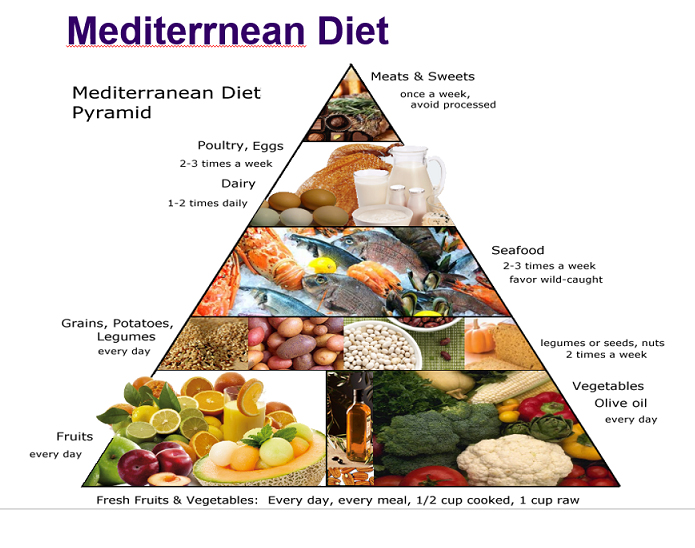Mediterranean Diet

It’s generally accepted that the folks in countries bordering the Mediterranean Sea live longer and suffer less than most Americans from cancer and cardiovascular ailments.
The not-so-surprising secret is an active lifestyle, weight control, and a diet low in red meat, sugar, and saturated fat and high in produce, nuts, and other healthful foods.
The Mediterranean Diet may offer a host of health benefits, including weight loss, heart and brain health, cancer prevention, and diabetes prevention and control.5
By following the Mediterranean Diet, you could also keep that weight off while avoiding chronic disease.
There isn’t “a” Mediterranean diet. Greeks eat differently from Italians, who eat differently from the French and Spanish. But they share many of the same principles.
Working with the Harvard School of Public Health,
Oldways, a nonprofit food think tank in Boston, developed a consumer-friendly Mediterranean diet pyramid that offers guidelines on how to fill your plate – and maybe wineglass – the Mediterranean way.

The DASH Diet, which stands for dietary approaches to stop hypertension, is promoted by the National Heart, Lung, and Blood Institute to do exactly that: stop (or prevent) hypertension, aka high blood pressure. It emphasizes the foods you’ve always been told to eat (fruits, veggies, whole grains, lean protein, and low-fat dairy), which are high in blood pressure-deflating nutrients like potassium, calcium, protein, and fiber. DASH also discourages foods that are high in saturated fat, such as fatty meats, full-fat dairy foods, and tropical oils, as well as sugar-sweetened beverages and sweets. Following DASH also means capping sodium at 2,300 milligrams a day, which followers will eventually lower to about 1,500 milligrams. DASH Diet is balanced and can be followed long term, which is a key reason nutrition experts rank it as U.S. News’ Best Overall Diet, tied with the Mediterranean Diet.




